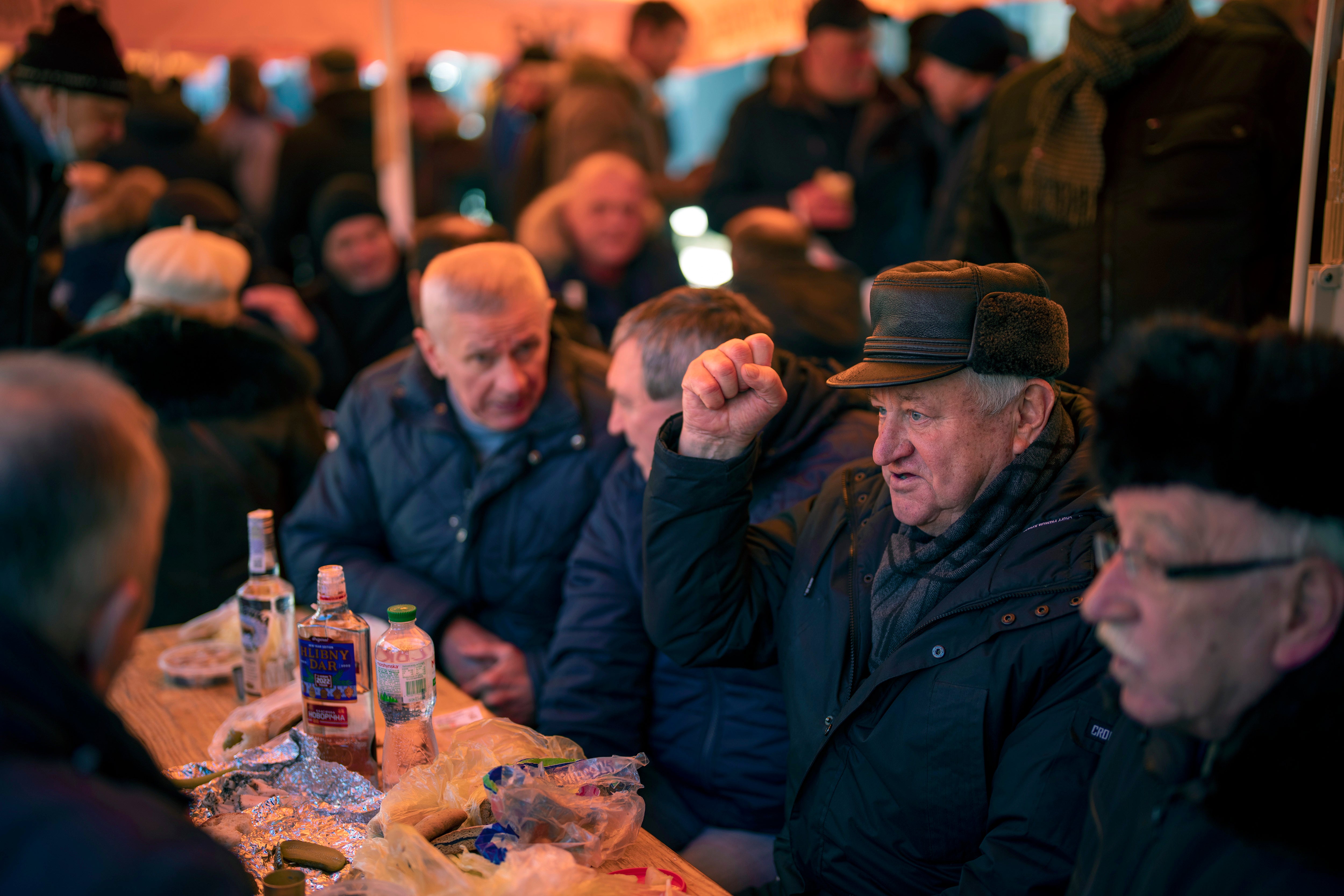Ukrainian people back at work but ‘not naive about seriousness of situation’
Stuart McKenzie said residents are ‘certainly trying’ to keep things as normal as possible despite the fears that Russia might invade.

Your support helps us to tell the story
From reproductive rights to climate change to Big Tech, The Independent is on the ground when the story is developing. Whether it's investigating the financials of Elon Musk's pro-Trump PAC or producing our latest documentary, 'The A Word', which shines a light on the American women fighting for reproductive rights, we know how important it is to parse out the facts from the messaging.
At such a critical moment in US history, we need reporters on the ground. Your donation allows us to keep sending journalists to speak to both sides of the story.
The Independent is trusted by Americans across the entire political spectrum. And unlike many other quality news outlets, we choose not to lock Americans out of our reporting and analysis with paywalls. We believe quality journalism should be available to everyone, paid for by those who can afford it.
Your support makes all the difference.Ukrainians have gone back to work, but are “not naive to the fact of how serious the situation is”, according to a British man living in the nation.
Stuart McKenzie, who is originally from Scotland but moved to Ukraine for business opportunities in 1994, said residents are “certainly trying” to keep things as normal as possible despite the fears that Russia might invade.
Russia’s defence ministry has claimed troops are returning to base after military exercises, with units crossing out of Crimea on Wednesday.
Mr McKenzie gave an insight into what life is like for those living in the Ukrainian capital, Kyiv.
He told BBC Breakfast: “We’re back at work. We’re keeping the economy working. Yes, we’re used to it.
“We’re not naive to the fact of how serious the situation is. But if we panicked every time something like this has happened, it would ruin the economy even more and that’s exactly what (Russian President Vladimir) Putin wants.
“So Ukraine’s standing strong, keeping the day-to-day goings-on as normal. We’re having a Unity Day today to celebrate Ukraine and to keep the country together. And that’s what it did in the Orange Revolution, it brought the country together for one goal. Neighbours, enemies, friends, everybody came together to protect their country.
“We want peace, we want to be left alone in Ukraine, to go about its own business and to have the future it desires… but we don’t believe it’s finished.”
Depaul International, a charity that works across the world to end homelessness, has warned that thousands will lose their homes and face humanitarian catastrophe if the tensions are not de-escalated.
The charity operates in Kharkiv, Kyiv, Odessa and Ivano-Frankivsk offering shelter and security for single mothers, safe hostel accommodation for rough sleepers and skills-based training.
Father Vitaliy Novak, chairman of trustees for Depaul Ukraine, who is based in Odessa, said “people will suffer the most” if there is an invasion because it will “destroy their lives”.
He told the PA news agency: “We saw a huge explosion of homeless people on to the streets after the first invasion and occupation in 2014.
“In south Odessa (now) there are more because people are coming down as it’s warmer than other places, like Kyiv. So we’re seeing more people on the streets looking for how to survive the winter.
“We know that if something will happen, the invasion, (the implications) will be immediate – thousands and thousands of people will need emergency help.”
He said the people in his city have recently tried to change their mindset about what could happen in the future and are trying to take each day as it comes.
“My region, for how I see it, it’s the usual daily life for people,” he said. “People have started the day very happy because nothing happened in the night. We just continue to do our responsibilities, our jobs.
“If you know tomorrow could be the worst, then you start to value every day, every minute and you just sleep better and better.”
He welcomed solidarity from leaders of other nations who have been holding diplomatic discussions and encouraging a peaceful resolution, as it makes Ukrainians feel “they are not alone”.
“We know that, in front of this big aggression, we are not alone. It can stop this aggression, I believe, in a diplomatic and peaceful way,” he added.
Matthew Carter, group chief executive of Depaul International, also called for a de-escalation.
He told PA: “Peace is the only solution. In our everyday lives, finding peaceful ways which take us forward is a sustainable way of working and living. Also (we need) to listen to the people of Ukraine.”